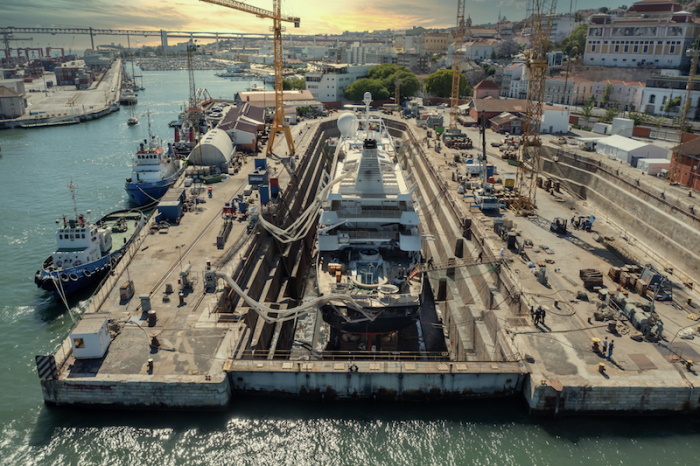South Korea’s three major shipbuilders are winning large orders for Liquefied Natural Gas (LNG) carriers in early 2024, indicating their strategies of selectively receiving orders for high value-added ships from their huge backlog of orders are bearing fruit.
HD Korea Shipbuilding & Offshore Engineering Co., the mid-tier holding company for HD Hyundai Co.’s shipbuilding and maritime business, announced on Monday that it recently signed a contract with an Oceania-based carrier to build four LNG carriers with a capacity of 174,000 cubic meters each.
The contract is worth a total of $1.08 billion, and these vessels are scheduled to be delivered by January 2028. With this contract, the company has orders for six LNG carriers in 2024 to date.
A notable aspect of this contract is that the unit price per vessel is higher than the market price. The unit price for the 174,000-cubic-meter LNG carriers contracted by HD Korea Shipbuilding & Offshore Engineering in this deal is $270 million per ship, a record high. The previous highest unit price for a vessel of the same type was $265 million.
The reason behind this development is the market structure that favors suppliers. “Currently, the three major shipbuilders in Korea can maintain their order backlogs at the level of the end of 2023 by winning just six months‘ worth of new contracts,” a shipbuilding industry insider said. “There is no reason to lower their ship prices, and they can even charge higher prices.”
For its part, Samsung Heavy Industries Co. signed a contract with QatarEnergy, Qatar’s state-owned petroleum company, in early February 2024 for the construction of 15 LNG carriers with a capacity of 174,000 cubic meters each and a total contract amount of 4.52 trillion won.
Hanwha Ocean Co. is also currently negotiating the details of an LNG carrier construction contract with QatarEnergy. Amid expectations for orders of more than 12 vessels, Hanwha Ocean is also exploring ways to secure orders for 26-cubic-meter Q-Max LNG carriers, which are much larger than the standard 174,000-cubic-meter carriers, to raise unit prices.
Source: Hellenic Shipping News






